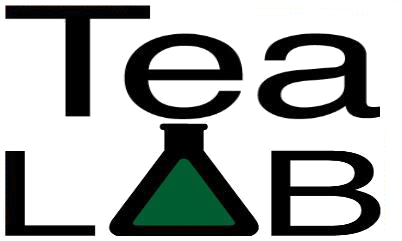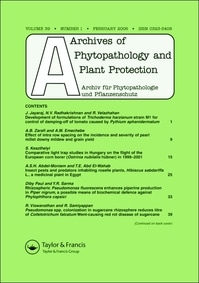 Using aerated compost tea in comparison with a chemical pesticide for controlling rose powdery mildew Archives of Phytopathology and Plant Protection 2014 Link Here The diligent scientists in Iran found that compost tea outperformed the synthetic pesticide Topaz (a triazole based fungicide) in trials on rose powdery mildew. The experiment was very simple, aerated compost tea was foliar sprayed twice a week, and the synthetic pesticide was sprayed once a week (as per the manufacturers recommendations) on roses in a controlled greenhouse. This was done over a 4 week period, at the end of which, the number of flowers infected with powdery mildew were counted and the numbers were run through statistical analysis. The percentage of control, or how many flowers did not have PM, was calculated and shown to be about 25% higher in the compost tea treatment. Studies like this are verifying that compost tea is an environmentally friendly option when it comes to battling pest and disease.
0 Comments
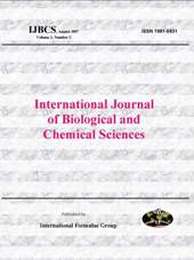 Comparative evaluation of enzyme activities and phenol content of Irish potato (Solanum tuberosum) grown under EM and IMO manures Bokashi International Journal of Biological and Chemical Sciences 2014 Scientists from the University of Bamenda in Cameroon were interested in Bokashi's affects on the growth of Irish potatoes (Solanum tuberosum). Their experiment used two different types of bran Bokashi, one inoculated with TerraGanix brand EM (Effective Microorganisms) and one with IMOs (Indigenous Microorganisms). Field beds were prepared, and Bokashis were applied, separately, one week before planting, and again 5 weeks after planting. They found that the EM Bokashi increased stem length and produced heavier potatoes as compared to both the IMO Bokashi and the control group. There were also notable differences in health related phenol content and enzyme activity of the treatment groups, generally being higher in the bokashi treatments. The researchers conclude that the microbes in bokashi sped up the breakdown of the organic matter in the Bokashi and in the surrounding soil, thereby releasing nutrients and supporting increased plant growth. Bokashi is an important part of a healthy and sustainable gardening approach. Thanks Effective Microorganisms!!!! 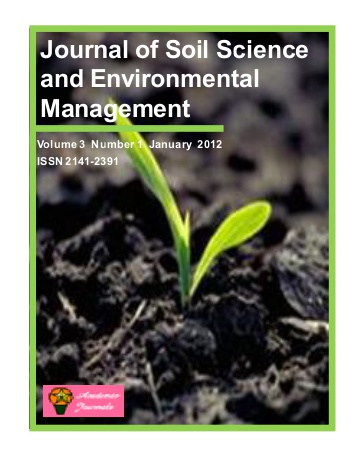 Effect of compost and earthworm production on soil properties, growth and dry matter yield of maize in crude oil degraded soil Journal of Soil Science and Environmental Management 2017 Link Here A Nigerian researcher has shown that the addition of compost and worms helps to reclaim soil that has been contaminated with crude oil. The study was done with 4 compost types that were mixtures of cassava compost and/or pig or poultry manure composts. The compost was mixed in with soil at a 1:5 ratio (compost:soil), 10 earthworms were added to each soil blend, and lastly corn seeds were planted in each test soil. The control soil was simply oil degraded soil without compost added. The test was ran for eight weeks. At the end of the experiment, all of the earthworms in the oiled soil were dead. The poultry compost had 7 survive, while the pig compost had an increase of worms to the tune of 36 (that's 26 new worms in 8 weeks!). The corn was also greatly affected by the addition of compost. The shoot and root dry matter of the oil-only soil was some 0.46 grams, while the cassava/poultry/pig compost weighed about 90 grams (the other compost/soil mixes had various results worth checking out in the link to the full article). This research shows that there is hope in saving soils that have been damaged by oil spills. A big thanks to the the single scientist, Nweke I. A., that did all this work. 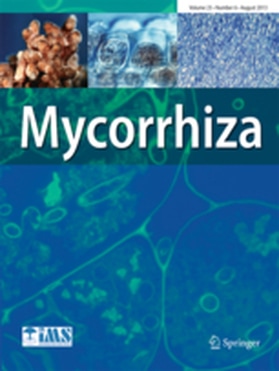 Interactions between biochar and mycorrhizal fungi in a water-stressed agricultural soil Mycorrhiza 2016 Link Here Australian scientists developed a unique way to see how biochar helps in times of drought. A soil chamber that used fine mesh to separate sides was used to see just how far mycorrhizal fungi will go to help out. They saw adding biochar helped the beneficial mycorrhizal fungi to colonize plant roots. Under the water stress conditions, the biochar treated soil grew plants with longer shoots with higher phosphorus content. This matched up with what they saw underneath the microscope. The biochar soil had more fungi-root colonization, with longer fungal hyphae. 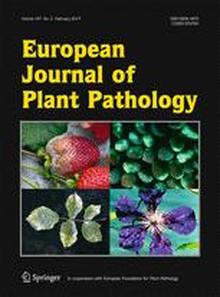 Effect of aerated compost tea on grapevine powdery mildew, botrytis bunch rot and microbial abundance on leaves European Journal of Plant Pathology 2013 Link Here Botrytis and Powdery Mildew are two major fungal diseases that affect a very wide range of plants. In this study, researchers way down under in Tasmania were able to suppress the two diseases on grape bunches and grape leaves with compost tea. The compost was made from a mix of manures, forest products, and salmon fishery waste. Leaves and bunches were inoculated with diseases. The control group was not sprayed with teas, while the test groups were sprayed at 3 times before and three times after inoculation (at 4 day intervals). The researchers saw that compost tea reduced the severity of infection (area of leaf surface or grape bunch affected) to less than 1%. Non-treated plants had severity levels of 15-77%. This is huge. Compost tea was able to prevent virtually any incidence of PM or Botrytis. I think I'll be doing a little foliar spraying this afternoon. 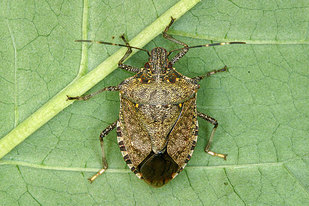 Compost Tea Reduces Egg Hatch and Early-Stage Nymphal Development of Halyomorpha halys (Hemiptera: Pentatomidae) Florida Entomologist 2014 Click for Full Text Scientists in Florida have shown compost tea helps control brown marmorated stink bugs. These stink bugs are a significant agricultural pest in the US and around the world. A non-areated compost tea extract made from a mix of mushroom compost and chicken manure was sprayed on egg masses laid by the stink bugs. The researchers found that the egg masses had a 13% drop in hatching, and even more improtantly, the nymphs that hatched were 3 times less likely to survive their first stage of development. The researchers do not conclude why compost tea has this affect, but do speculate that the microbes in tea may interfere with bacteria that live in the stink bug's gut. I wonder what other bugs are bugged by my tea? 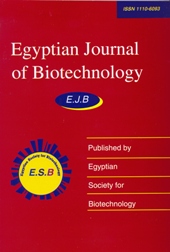 The use of Bacillus mycoides and Bacillus subtlis as biocontrol agents for the fungi causing root rot disease in common bean Egyptian Journal of Biotechnology 2013 Full Text Here Researchers in Egypt were able to show that Bacillus mycoides, found in Soil Life, was able to fight off the common fungal diseases Fusarium solani, Rhizoctonia, and Slcoritium rolfsii. The scientists cultured the bacteria from the soil, isolated them, and ran a bunch of tests on them. Not only did they fight off the fungal diseases, they were also shown to produce chitanases, proteases (which would disrupt fungal growth), they also produce two very important plant growth hormones, Indoleacetic acid and Gibberellic acid. Microbes magic!!! 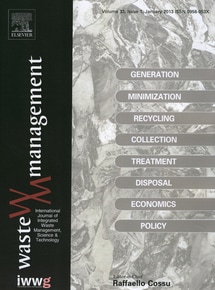 Effects of the main extraction parameters on chemical and microbial characteristics of compost tea Journal of Waste Management 2016 http://www.sciencedirect.com/science/journal/0956053X/52/supp/C This study used heavy statistics to show that tea should be brewed for not much longer than 48 hours, and used immediately. The compost was made from manure and greenwaste, and was brewed for up to 6 days, then stored for up to 6 weeks. The numbers show that a short brew time and immediate use will lead to a higher quality tea and response therefrom. 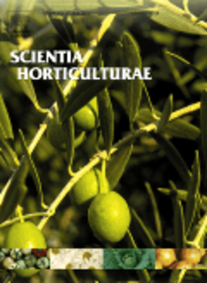 Enhancing sustainability of a processing tomato cultivation system by using bioactive compost teas Scientia Horticulturae 2016 http://www.sciencedirect.com/science/article/pii/S0304423816300814 In a 2 year study, an Italian research team has shown that aerated compost tea helps tomatoes yield more, resist disease, and helps them initiate more root growth. The researchers used 4 different types of compost, of which the manure based compost showed higher amounts of available nutrients, while the green-waste based compost helped initiate more root growth.  Potential Impact of Compost Tea on Soil Microbial Properties and Performance of Radish Plant under Sandy Soil conditions - GreenhouseExperiments Australian Journal of Basic and Applied Sciences 2016 Click For Article Radishes treated with compost tea had 150% Nitrogen , 92% more Phosphorus, and 253% more Potassium content in their leaves than those that were untreated. Compost tea helped the plants uptake nutrients in a major way. 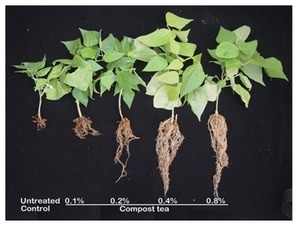 Effect of Aerated Compost Tea on the Growth Promotion of Lettuce, Soybean, and Sweet Corn in Organic Cultivation Journal of Plant Pathology 2015 https://www.ncbi.nlm.nih.gov/pmc/articles/PMC4564151/ Here we see that Compost Tea is well worth the effort. Four types of compost were brewed and then the available nitrogen was determined, as well as the density of microbial communities, along with their affect on plant growth characteristics. Across the board it was shown that aerating compost tea released more nutrients, increased microbial counts, and helped plants grow. Way to go AACT.  Properties of vermicompost aqueous extracts prepared under different conditions Journal of Environmental Technology 2016 http://www.tandfonline.com/doi/full/10.1080/09593330.2016.1231225 This paper shows the extraction efficiency (ability to measure) of N, P, K, Ca, & Mg all increased 33-50% in an aerated compost tea, as opposed to a non-aerated tea. The researchers used two different vermicomposts (horse manure being one, and apple pomace the other) under two conditions, aerated and non-aerated. This highest levels of nutrients extracted were seen after 48 hours of brew time. I had learned long ago that the main benefit was the addition of microbes, and not so much the nutrients, looks like there's some more learning to do..... |
Archives
June 2024
Categories
All
|
Contact Us
Why TeaLAB?TeaLAB is committed to helping people and their gardens to become more self- sufficient, healthier, and productive. Grow your sweetest corn, your biggest watermelon, your tallest quinoa, your tastiest tomato, and your happiest you.
TeaLAB was founded to teach people how to garden organically, so that we can become more closely connected with the land. Our goal has been to simplify growing methods so that gardeners have a positive experience in the garden. TeaLAB is where the garden meets the laboratory. From around the world and into your backyard, our products contain ingredients that are sourced both locally and globally. Using methods both ancient and cutting edge, TeaLAB promotes maximum biology. Grow with TeaLAB. |

 RSS Feed
RSS Feed
